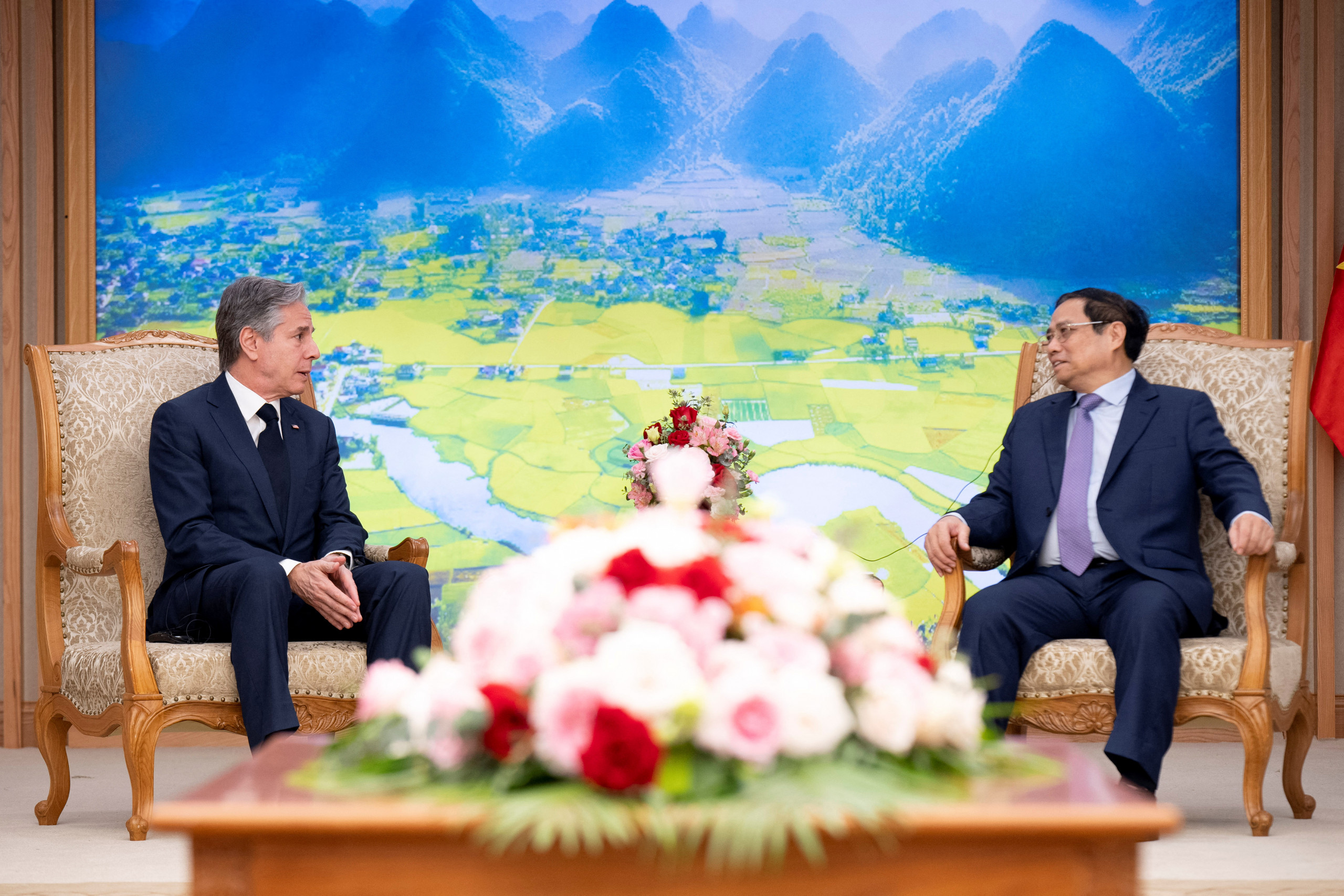Antony Blinken's visit confirms Washington's intention to elevate bilateral relations. Hanoi is willing, but does not want to get involved in confrontational logic
By Tommaso Magrini
The United States is hyperactive on Vietnam. This was evidenced by Secretary of State Antony Blinken's trip to Hanoi a few days ago, but also, and more importantly, by his intention to elevate bilateral relations. Vietnamese Prime Minister Pham Minh Chinh and Blinken have expressed a desire to deepen their ties. In his first visit to the Southeast Asian country as a senior U.S. diplomat, Blinken met with senior officials, including Vietnamese Secretary General Nguyen Phu Trong and Prime Minister Pham Minh Chinh. The main topic was the possibility of strengthening bilateral relations in all areas.
"For President Biden and for Washington, this is one of the most dynamic and most important relationships we've ever had," Blinken said during the press conference that concluded his meetings in Hanoi. "It has had a remarkable trajectory over the last two decades. Our belief is that it can and will grow even more."
Prior to the meeting with Blinken, Chinh said both sides are trying to elevate ties "to a new height," following last month's phone call between President Joe Biden and Vietnam's ruling Communist Party chief Nguyen Phu Trong, a conversation that Chinh said was "very successful."
According to analysts, the diplomatic anniversary and the Biden-Trong phone call could lead to a meeting between the two in July or other high-level meetings.
Blinken told reporters that security is one of the key components of relations between the two countries. Washington and U.S. defense companies have openly stated that they want to strengthen their military supplies to Vietnam-until now largely limited to coast guard ships and training aircraft-as the country seeks to diversify from Russia, which is currently its main supplier.
Since the late 1990s, military modernization efforts have seen Hanoi import 36 more multi-role aircraft, six submarines, a number of coastal defense missile systems and four frigates from Russia. But delivery of the latest frigate was delayed following Moscow's annexation of Crimea in 2014 because the engines were built in Ukraine, prompting Hanoi to rethink, and eventually cancel, its planned purchase of two more Russian warships.
"The Vietnamese military has realized that we can no longer access Russia's huge industrial capacity," Nguyen The Phuong, professor of international relations at Ho Chi Minh City University of Economics and Finance, told the South China Morning Post. "We have been reusing many Soviet-origin weapons for so long.... It is necessary to change, we have to find new ways to modernize."
Vietnamese policy does not allow foreign bases, foreign troops or alliances against other countries. Hanoi has also been deterred by the relatively high price of U.S. arms and the fear that supplies could be blocked by U.S. deputies over human rights concerns. Although direct agreements with the United States are unlikely in the short term, any official improvement in relations will facilitate trade with Western allies, including the purchase of secondhand U.S. weapons from South Korea.
Beware also of the significance of elevating relations, which would certainly be relevant but would not mean that Vietnam is ready to be "enlisted" in confrontational logics.






